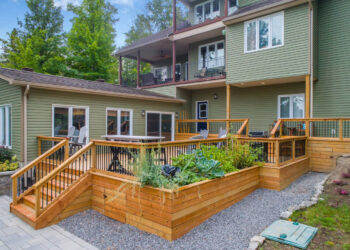When someone complements your home, its energy efficiency is probably a feature they’ll miss. Nevertheless, homeowners and real estate agents should still adhere to power requirements during the design and construction. Aside from meeting a mandatory set of rules, there are benefits to following different regulations.
The Importance of Building Code Energy Requirements
Building energy codes allow construction projects to incorporate electricity-efficient design into new buildings. Older structures are also subject to power requirements. The most common energy codes in the United States are Energy Star and the Leadership in Energy and Environmental Design or LEED.
Energy Star rates many products and devices, providing critical information to consumers who need to buy household appliances. Meanwhile, LEED is a building certification that verifies a building’s sustainability.
There’s also the International Energy Conservation Code (IECC), which is the basis of most building code power requirements. Don’t confuse these guidelines with other I-Codes, like the International Building Code and the International Property Maintenance Code. The IECC focuses more on electricity conservation and emission reduction in building design.
This regulation has evolved considerably since its launch in 2003. According to the Department of Energy, the IECC 2021 is 9.3% more efficient than any previous residential and commercial energy codes. It encompasses heating, cooling, lighting, power usage and more guidelines.
Meeting Energy Codes
Energy codes can take plenty of time and effort to incorporate into a project, so they should always be at the forefront. The three most important factors for maximum electrical efficiency are auditing, retrofitting and accommodating systems.
Energy Audit
A licensed auditor can best provide an energy assessment, as they know residential and commercial buildings well. However, individuals can also conduct their inspection as an overview.
More apparent factors to look for include air drafts and wall cracks. Allowing air to leak outside a heated or cooled room can make appliances use more power to compensate. There’s also the lighting, which can vary in brightness and energy consumption in the long run. Once an energy audit notes areas for improvement, it will produce a list of recommendations to implement in the project.
Learn how to Upgrade Your Home for Energy Efficiency.
Energy-Efficient Retrofitting
Whether building a home from scratch or renovating an older building, installing efficient features is essential. Homeowners and real estate developers usually target heating, ventilation, lighting and controls.
For example, they look for precast concrete foundations with a built-in thermal barrier. This inclusion is more straightforward than tearing down the wall and applying the barrier from scratch. Plus, it’s better for conditioning, which can lower annual heating and cooling costs in the long run.
Energy-Efficient Sources
While not strictly required at the moment, renewable resources are highly recommended to accommodate the rest of the build’s efficiency efforts and features. Solar power is the most popular option among homeowners, with panel systems that can easily adhere to a property.
However, options such as wind energy systems or geothermal heat pumps exist. A wind-based system is comprised of small wind turbines that harness the wind and convert it into electricity. Meanwhile, a geothermal heat pump transfers heat from below the Earth, serving as an energy source for a building’s heating and cooling system.
Incentives for Energy Code Compliance
Even if building code energy requirements weren’t mandatory, it’s still ideal to follow them. A variety of incentives come with high energy efficiency.
Property Comfort
One key advantage of following energy codes is living in an optimized home. The extra steps make the house more comfortable since heating and cooling are maintained throughout. Retrofitting an HVAC system can make the indoor air quality more accommodating than ever.
Financial Rebates
Power requirements minimize electricity consumption, giving you savings on your utility bills. Besides that, developers can also look into financial rebates like The Energy Efficient Home Improvement Credit. This program offers homeowners a 30% tax credit to cover improvements regarding a property’s energy independence.
High Property Values
Meeting power requirements can be more attractive to buyers, as retrofitting for efficient features can take time. A survey of about 1,500 homebuyers found consumers are willing to pay more for a property with higher energy efficiency labeling.
Better Sustainability
These requirements can increase sustainability and lower emissions in the long run. Green buildings are mindful in design and production, making them attractive to people who want to help the planet and lessen their climate change contributions.
Work with Building Code Energy Requirements
Building code energy regulations are necessary rules that can benefit the real estate industry, the homeowner and the environment. Take the time to include them in your project to attain power efficiency.









